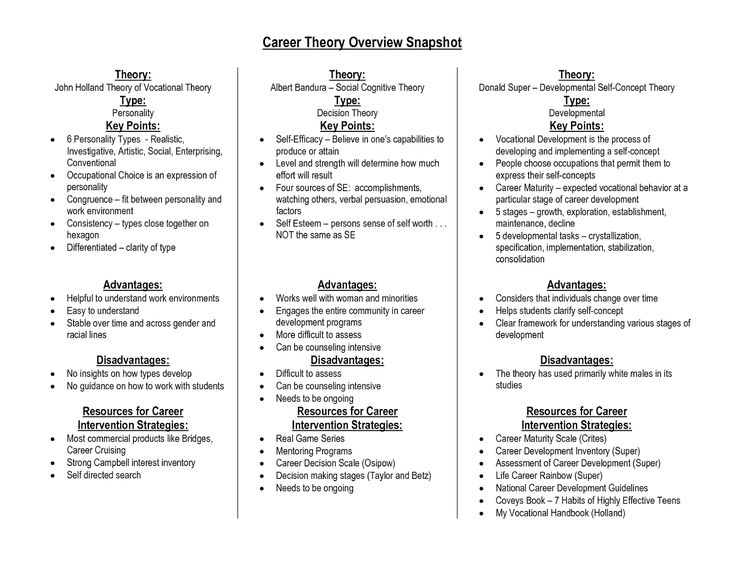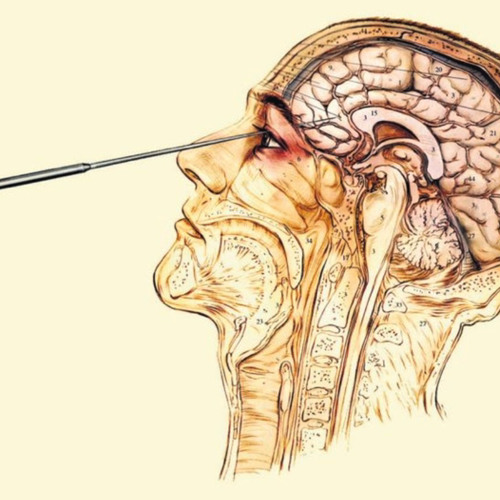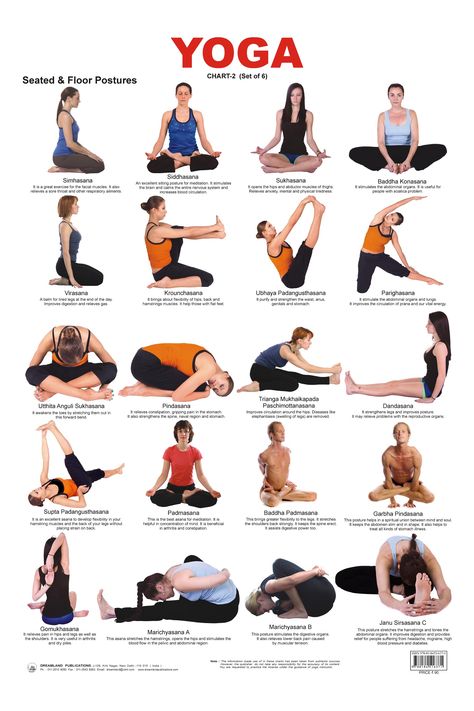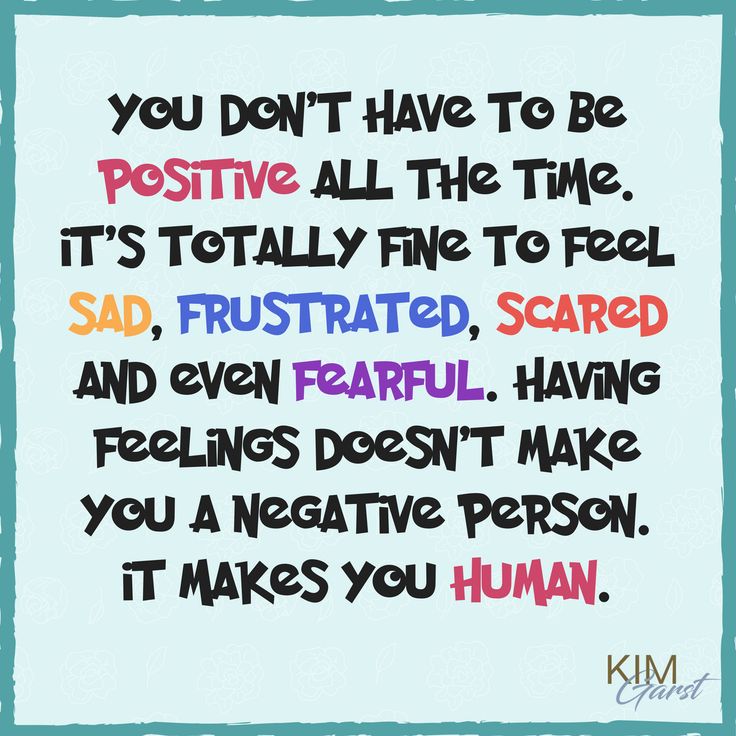According to career theorist john holland a realistic personality type
Holland’s theory
Careers are determined by an interaction between our personality and the environment in John Holland's Theory of Career Choice. We want jobs with people like us.
John Holland's Theory of Career Choice (RIASEC) maintains that in choosing a career, people prefer jobs where they can be around others who are like them. They search for environments that will let them use their skills and abilities, and express their attitudes and values, while taking on enjoyable problems and roles. Behaviour is determined by an interaction between personality and environment.
Holland’s theory is centred on the notion that most people fit into one of six personality types:
- Realistic
- Investigative
- Artistic
- Social
- Enterprising
- Conventional.
Realistic
| Description of interest area | Some key skills | Some occupations with Realistic components | Subjects you could study to give you the skills |
| Likes to work mainly with hands, making, fixing, assembling or building things, using and operating equipment, tools or machines. | Using and operating tools, equipment and machinery, designing, building, repairing, maintaining, working manually, measuring, working in detail, driving, moving, caring for animals, working with plants | Pilot, farmer, horticulturalist, builder, engineer, armed services personnel, mechanic, upholsterer, electrician, computer technologist, park ranger, sportsperson | English, Maths, Science, Workshop, Technology, Computing, Business Studies, Agriculture, Horticulture, Physical Education |
Investigative
| Description of interest area | Some key skills | Some occupations with Investigative components | Subjects you could study to give you the skills |
| Likes to discover and research ideas, observe, investigate and experiment, ask questions and solve problems | Thinking analytically and logically, computing, communicating by writing and speaking, designing, formulating, calculating, diagnosing, experimenting, investigating | Science, research, medical and health occupations, chemist, marine scientist, forestry technician, medical or agricultural laboratory technician, zoologist, dentist, doctor | English, Maths, Science, Computing, Technology |
Artistic
| Description of interest area | Some key skills | Some occupations with Artistic components | Subjects you could study to give you the skills |
| Likes to use words, art, music or drama to communicate, perform, or express themselves, create and design things | Expressing artistically or physically, speaking, writing, singing, performing, designing, presenting, planning, composing, playing, dancing | Artist, illustrator, photographer, signwriter, composer, singer, instrument player, dancer, actor, reporter, writer, editor, advertiser, hairdresser, fashion designer | English, Social Studies, Music, Drama, Art, Graphic Design, Computing, Business Studies, Languages |
Social
| Description of interest area | Some key skills | Some occupations with Social components | Subjects you could study to give you the skills |
| Likes to work with people to teach, train and inform, help, treat, heal and cure, serve and greet, concerned for the wellbeing and welfare of others | Communicating orally or in writing, caring and supporting, training, meeting, greeting, assisting, teaching, informing, interviewing, coaching | Teacher, nurse, nurse aide, counsellor, police officer, social worker, salesperson, customer service officer, waiter, secretary | English, Social Studies, Maths, Science, Health, Physical Education, Art, Computing, Business Studies, Languages |
Enterprising
| Description of interest area | Some key skills | Some occupations with Enterprising components | Subjects you could study to give you the skills |
| Likes meeting people, leading, talking to and influencing others, encouraging others, working in business | Selling, promoting and persuading, developing ideas, public speaking, managing, organising, leading and captaining, computing, planning | Salesperson, lawyer, politician, accountant, business owner, executive or manager, travel agent, music or sports promoter | English, Maths, Business Studies, Accounting, Economics, Social Studies, Drama, Computing, Text Information Management, Languages |
Conventional
| Description of interest area | Some key skills | Some occupations with Conventional components | Subjects you could study to give you the skills |
| Likes working indoors and at tasks that involve organising and being accurate, following procedures, working with data or numbers, planning work and events | Computing and keyboarding, recording and keeping records, paying attention to detail, meeting and greeting, doing calculations, handling money, organising, arranging, working independently | Secretary, receptionist, office worker, librarian, bank clerk, computer operator, stores and dispatch clerk | English, Maths, Business Studies, Accounting, Economics, Computing, Text Information Management |
Holland asserts that people of the same personality type working together in a job create an environment that fits and rewards their type.
Within this theory there are six basic types of work environment, which correlate directly to the personality types. Holland emphasises that people who choose to work in an environment similar to their personality type are more likely to be successful and satisfied. This idea is important as it shows Holland’s theory can be flexible, incorporating combination types.
Holland’s theory takes a problem-solving and cognitive approach to career planning. His model has been very influential in career counselling. It has been employed through popular assessment tools such as the Self-Directed Search, Vocational Preference Inventory and the Strong Interest Inventory.
- Download a copy of Holland's model (PDF - 188KB) (Word - 191KB)
There is much research to support Holland’s typology. However it is not without criticism, the most common being the prevalence of females to score in three personality types (artistic, social and conventional). According to Holland this is because society channels women into female-dominated occupations.
Sources
- Jones, L, ‘The Career Key’, accessed December 2008, (www.careerkey.org).
- ‘Big Picture View of Career Development Theory’, accessed December 2008, (www.ccdf.ca).
- Savickas, M, and Lent, R, ‘Convergence in Career Development Theories’, Palo Alto, California, USA: Consulting Psychologists Press Inc.
Updated 13 Aug 2019
Holland’s Six Occupational Personality Types | by Josline D'silva
John Holland,professor emeritus psychologist at John Hopkins proposed a theory that personality factors of an individual influences their career choices.They intend to work with people who have same preferences as them at work,chose to prefer job where their present skill and abilities can be optimally used to improve their career graphs while also be satisfied with their job performance .
Holland described six personality types are visually represented by a hexagonal model. The types are
RIASEC- Realistic (R)- The ‘Do-er’
- Investigative (I) — The ‘Thinker’
- Artistic (A) — The ‘Creator’
- Social (S) — The ‘Helper’
- Enterprising (E) — The ‘Persuader’
- Conventional (C ) — The ‘Organiser’
The types of personality closest to each other on the hexagon have the most characteristics in common.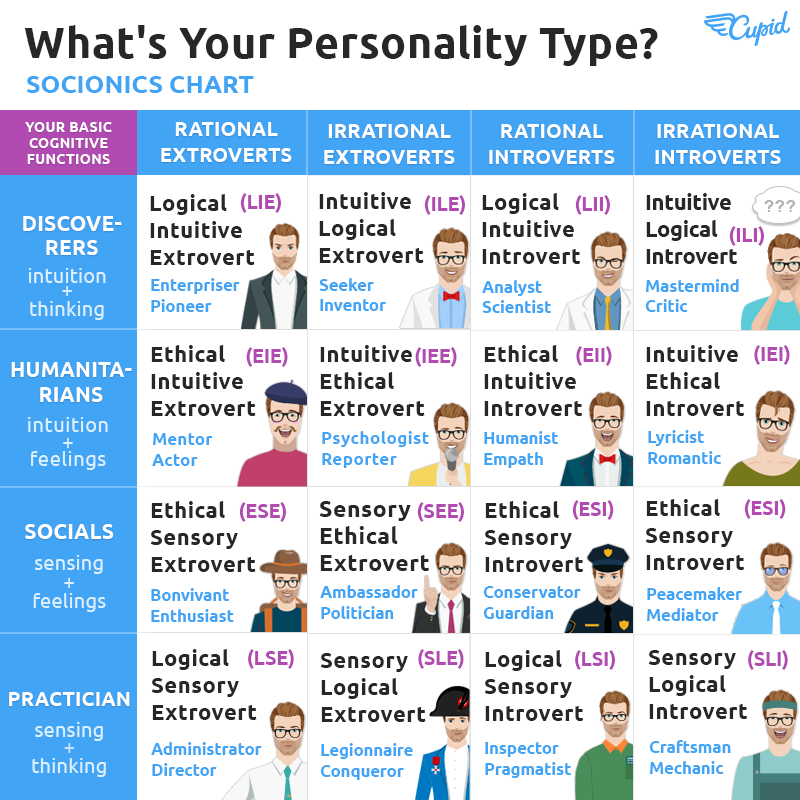
- Realistic (R) — Realistic individuals see themselves as practical,realistic and mechanical,involve in activities that include practical, hands-on problems and solutions and are less likely to work people.They have task oriented behavior are kinesthetic learners and often do physical task. Typical realistic careers include electrician, engineer, veterinarian and the military.
- Investigate (I) — Investigative individuals see themselves precise, scientific, and intellectual, involve working with ideas which require an extensive amount of thinking.They seek autonomousity to work ,analyse,organise facts ,hence lack any persuasive skills and do not enjoy leadership positions.They value science and ,most would prefer being employed in investigative and explorative work sectors. Typical investigative careers include medical technologist, biologist, chemist and systems analyst.
- Artistic (A) — Artistic individuals see themselves expressive, original, and independent,involve working with forms, designs and patterns.
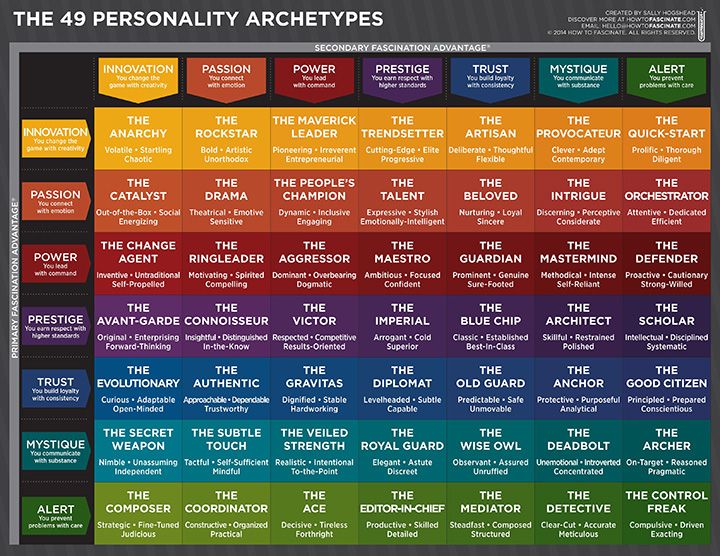 They enjoy creative activities, are flexible ,impulsive and emotional and communicate in a very expressive manner. They value aesthetics would prefer to being employed in creative sectors such advertising,theatre ,fine arts etc.Typical artistic careers include musician, reporter and interior decorator.
They enjoy creative activities, are flexible ,impulsive and emotional and communicate in a very expressive manner. They value aesthetics would prefer to being employed in creative sectors such advertising,theatre ,fine arts etc.Typical artistic careers include musician, reporter and interior decorator. - Social (S) — Socialistic individuals see themselves expressive, original, and independent ,enjoy helping,training or providing service to others.They like working in team ,participate in discussion. They would prefer to be employed in teamwork like work sectors requiring significant interaction with other team-people. Typical social careers include teacher, counselor and social worker.
- Enterprising(E) — Enterprising individuals see themselves energetic, ambitious, and sociable. Enjoy activities that require them to persuade others, such as sales, and seek out leadership roles. They would like to be employed in those sectors where there is opportunity to engage in activities, such as leadership, management etc.
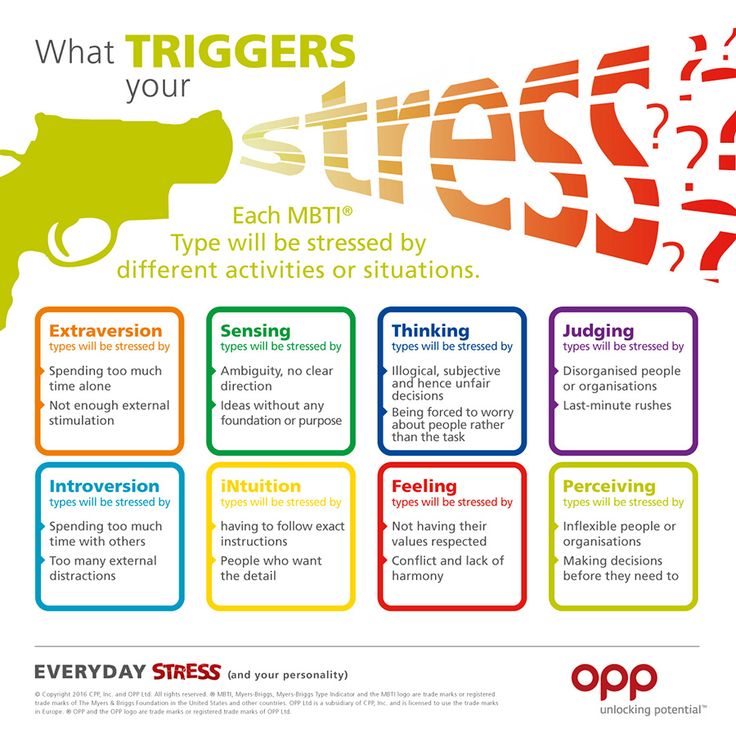 Typical enterprising careers include salesperson, business executive and manager.
Typical enterprising careers include salesperson, business executive and manager. - Conventional (C ) — Conventional individuals see themselves organised,careful,conscientiousness and effective. They are responsible but shy away any leadership roles.They prefer to be employed in organizational sectors, record keeping and data management jobs .Typical conventional careers include secretary, accountant and banker.
A research by Holt, Kaufman and Pumaccahua(2013)found that individuals who majored in investigative and artistic courses were more agreeable and scored higher on openness and self-assessed creativity skills than those individuals who were pursuing realistic and social majors. Investigative and realistic individuals are more competitive and are attracted to tasks which involve competition pressure (Houston, Harris, Howansky & Houston, 2015).
I checked my Holland’s type and it turn out be true to the kind of people I seek to work with .To know your Holland personality type visit here. .
.
HOLLAND’S OCCUPATIONAL PERSONALITY TYPES[PDF]. (n.d.). Johns Hopkins University.
Holland’s Theory of Career Choice and You. (n.d.). Retrieved June 14, 2019, from https://www.careerkey.org/choose-a-career/hollands-theory-of-career-choice.html#.XQNcfBYzaM8
Hollands Six Personality Types — North Dakota. (n.d.). Retrieved June 14, 2019, from http://www.nd.gov/cte/crn/docs/HollandTypes.pdf
Kaufman, J. C., Pumaccahua, T. T., & Holt, R. E. (2013). Personality and creativity in realistic, investigative, artistic, social, and enterprising college majors [Abstract]. Personality and Individual Differences,54(8), 913–917. doi:10.1016/j.paid.2013.01.013
Houston, J. M., Harris, P. B., Howansky, K., & Houston, S. M. (2015). Winning at work: Trait competitiveness, personality types, and occupational interests. Personality and Individual Differences,76, 49–51. doi:10.1016/j.paid.2014.11.046
Holland’s Theory of Vocational Choice — Career Development — IResearchNet.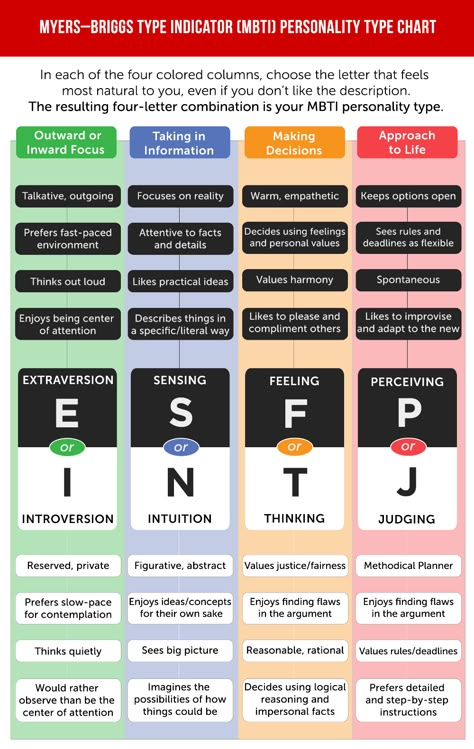 (2016, December 10). Retrieved June 14, 2019, from http://career.iresearchnet.com/career-development/hollands-theory-of-vocational-choice/
(2016, December 10). Retrieved June 14, 2019, from http://career.iresearchnet.com/career-development/hollands-theory-of-vocational-choice/
Brief description of personality types according to J. Holland
Contents of the article
The modern world is rapidly developing, new professions appear, duties in old specialties are changing. Such a variety of fields of activity can both facilitate the search for one's own vocation, and significantly complicate it. Many people feel out of place and do not understand which way they should move. But personality typology will help you find your place in the world. Today we will consider the famous theory of 6 types of personality by J. Holland.
Realistic personality type
From the name it already becomes clear that these are very practical people who are focused on the present. Often this type is characteristic of men. Realists prefer professions with specific tasks: engineer, agronomist, driver, etc. They enjoy working with machines and tools, they love money, status and power.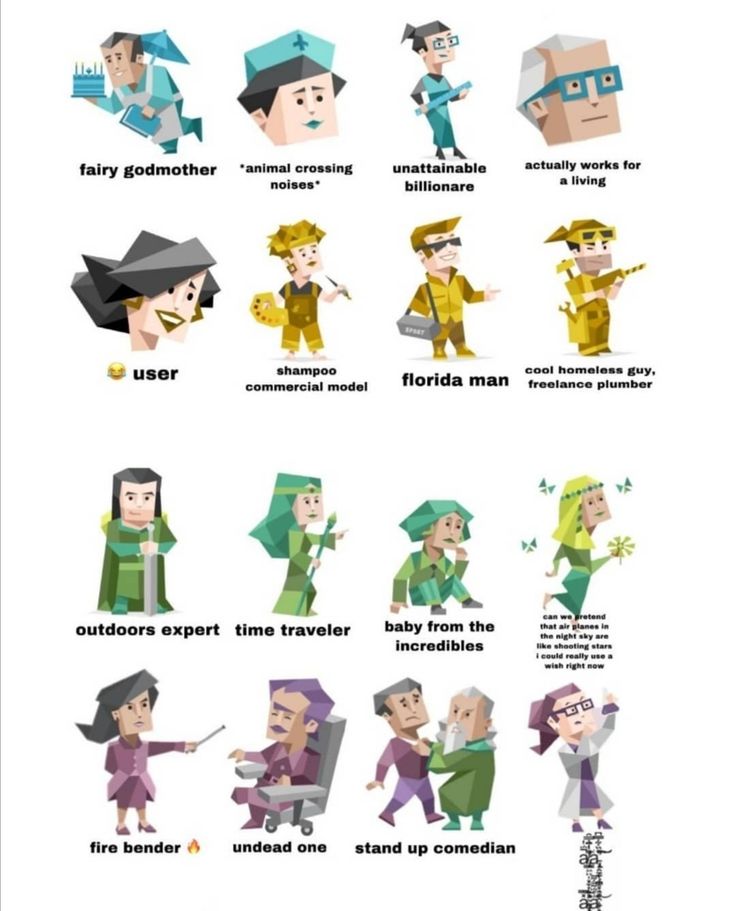 Their weakness is communication.
Their weakness is communication.
Intellectual personality type
Such people are researchers by nature, have high intelligence, analytical and creative thinking. Intellectuals mainly choose the scientific field of activity: mathematics, chemistry, biology. This type of personality is characterized by restraint, pessimism, curiosity, activity. Less developed communication and leadership skills.
Artistic personality type
Artists are characterized by an emotional complex outlook on life, non-standard thinking, sensuality and impracticality. In communication and decision-making, they are guided by intuition and imagination. Often this type of personality chooses creative professions: designer, actor, writer, etc. Such people are very active and sociable.
Social personality type
Such people strive for self-development and teaching others. They are emotional and sensitive, empathic, patient and tactful, they appreciate social activity in all its manifestations.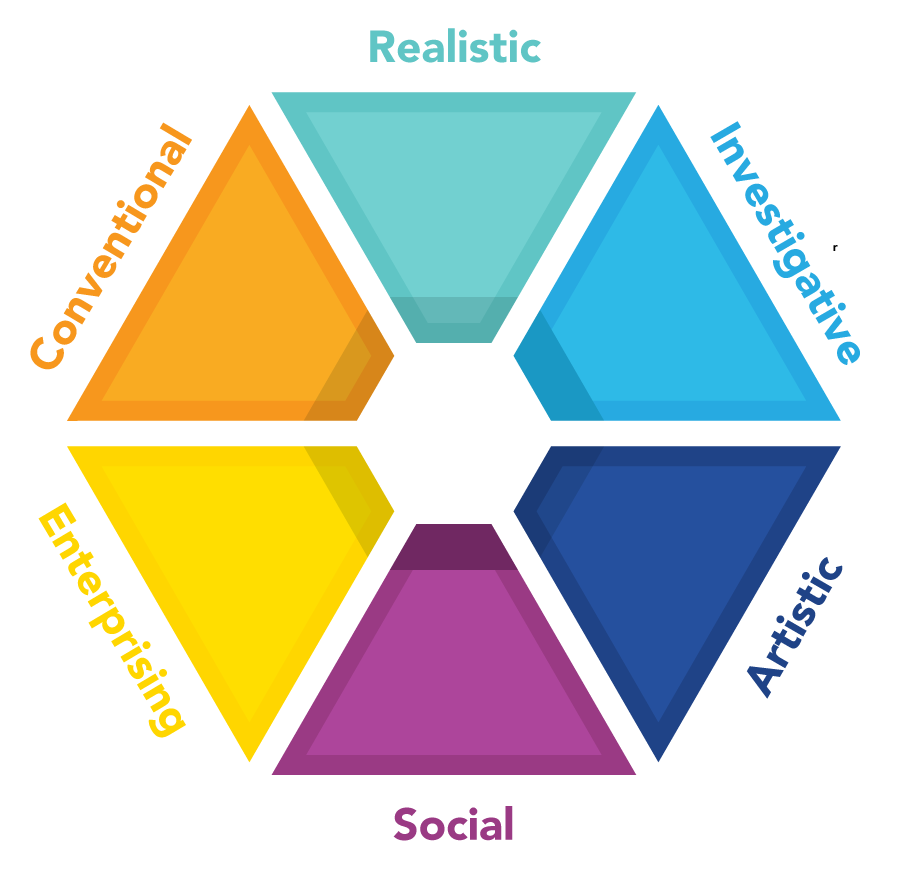 As a rule, they choose social professions: psychologist, doctor, teacher. They have excellent communication skills, leadership qualities, and result orientation.
As a rule, they choose social professions: psychologist, doctor, teacher. They have excellent communication skills, leadership qualities, and result orientation.
Entrepreneurial personality type
Ambitious and optimistic people who clearly go to their goals and strive to achieve record results. They consider themselves leaders, energetic speakers who know how to influence people's opinions. However, they lack professional knowledge, they avoid research and analytical tasks. This type of personality mainly chooses leading professions: manager, director, broker.
Conventional personality type
Systematic, conscious and practical people who love to structure work, systematize information, organize processes. They prefer to work according to instructions, think in stereotypes, and follow traditions. Conservatives can be realized in such professions as an accountant, secretary, economist.
There are many other theories about personality types in the world in which you can learn a lot more about yourself.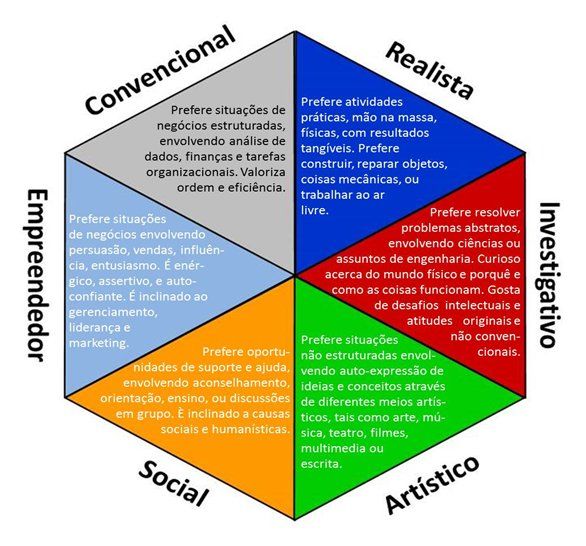 If you want to dive deeper into this topic, then check out the free online Personality Typology course.
If you want to dive deeper into this topic, then check out the free online Personality Typology course.
Holland's test: take it online - 5 CAREER GUIDANCE TESTS
If you are facing a career choice, then it makes sense to take the Holland (Holland) test for career guidance. This technique will help determine your professional preferences. John Holland identified 6 basic personality types:
- Artistic type (professions related to the arts)
- Social type (service, education and medicine)
- Entrepreneurial type (business, management positions, active work)
- Realistic type (workers and technicians)
- Intelligent type (science and research)
- Office or conventional (analysis, information processing)
You can take the Holland test online for free - read the instructions and start filling out the form. The system will calculate points automatically.
The system will calculate points automatically.
Start test
About the test
The test was created by American psychologist John Holland and is actively used for career guidance not only in America but also in Europe. He is loved by both psychologists and employers, for whom it is important to test applicants before being selected for the appropriate position. The Holland test consists of 43 questions, or rather pairs of professions, from which you need to choose the one that you consider the most suitable for yourself.
Description of types
Artistic. Such people strive for self-expression, they are emotional, original and creatively gifted. For them, beauty, aesthetics are important, they are distinguished by a non-standard vision of the world and high sensitivity. They do not like routine, so they are looking for themselves in creative fields: music, cinema, literature and other types of art. Suitable professions: musician, actor, writer, director, photographer and videographer, artist, designer, architect, etc.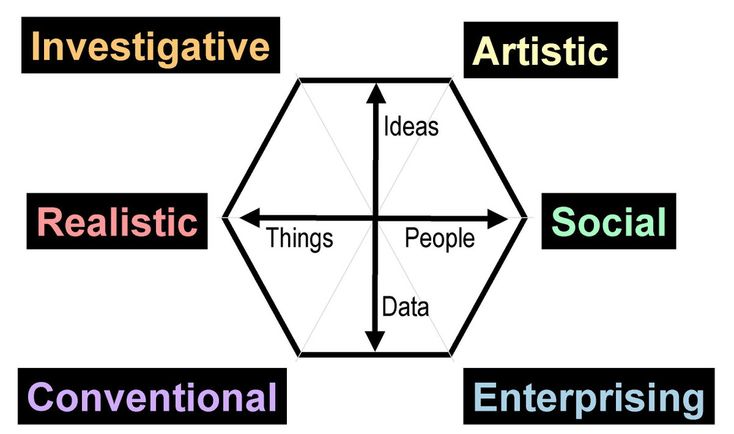
Social. People of this type choose professions that require active communication and interaction with the social environment. They are friendly, patient, responsive, easy to contact. These are future doctors, teachers, psychologists, consultants, social workers, managers, managers. The social type corresponds to medical, pedagogical activities, the service sector, public works, volunteering, counseling and social activities.
Entrepreneurial These are energetic, enterprising people who are distinguished by ingenuity, independence, and activity. They are not afraid of risk, like to lead, have organizational skills. They do not like manual labor and monotonous work, so they choose active professions, become businessmen or occupy leadership positions. Suitable professions: journalist, director, marketer, entrepreneur, administrator.
Realistic. This type is characterized by the desire to work with technology, material objects: create things, maintain machines, manage technical processes.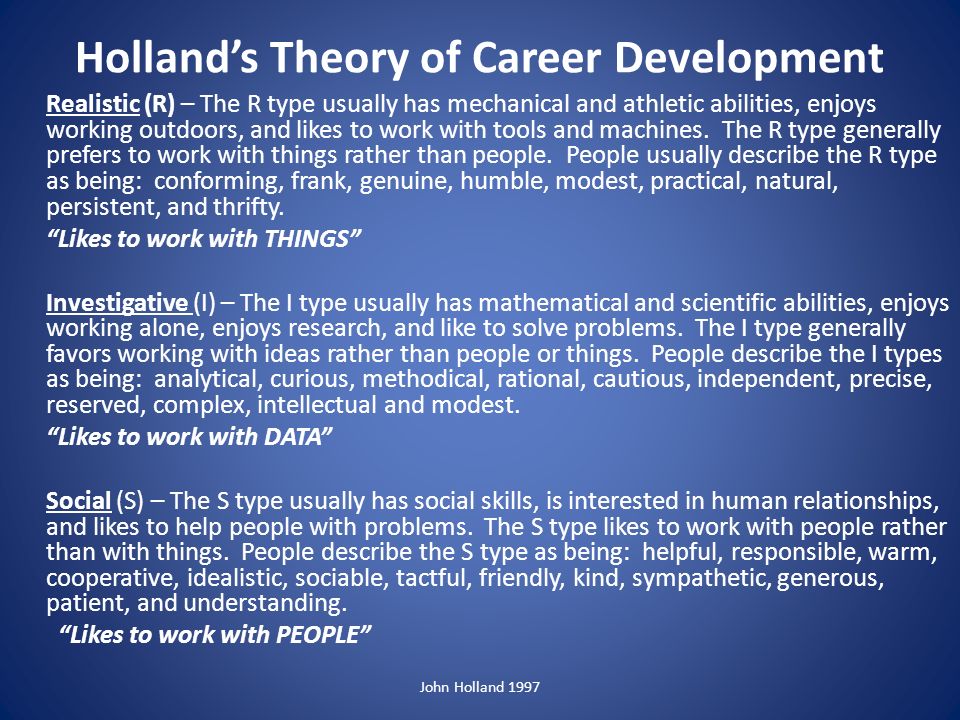 Realists are emotionally stable, can perform complex and monotonous work, like clearly defined tasks, strong and enduring. These are mechanics, drivers, engineers, electricians, builders, sailors.
Realists are emotionally stable, can perform complex and monotonous work, like clearly defined tasks, strong and enduring. These are mechanics, drivers, engineers, electricians, builders, sailors.
Intelligent (research). These are people of mental labor, intellectuals. They are suitable for professions that place high demands on intelligence, analytical abilities, and memory. They are not only theorists, but also researchers - they prefer to solve complex problems, strive for discoveries, and are at the forefront of innovation. Suitable professions will be everything related to science: physicist, chemist, mathematician, astronomer, biologist, scientist in any field.
Office (conventional) personality type. These are people of systemic thinking, they plan, analyze and process a large amount of information very well. Assiduous, patient, meticulous. They do an excellent job of organizing information in the form of numbers, formulas, text, as well as maintaining documentation. They structure all their activities, are practical and executive. Suitable professions: accountant, economist, programmer, document manager.
They structure all their activities, are practical and executive. Suitable professions: accountant, economist, programmer, document manager.
How to read the result
The method is based on the assumption that a successful career choice depends on the values and professional inclinations of the individual. A person chooses a profession that suits his type, but not always only one dominant personality type stands out, it happens that there are two or even several of them.
In this regard, Holland advises to draw conclusions, focusing on the three types that scored the most. According to his theory, each type is similar to its "neighbor":
For example, realistic is similar to conventional and intellectual, and most of all differs from social. If the adjacent types scored the most points, then it is easier for a person to make a choice. Holland's Professional Personality Test will help you make the right decision.
Take the Holland test online
Instruction: In each of the 43 pairs of professions, choose the one that suits you best. Run time: 5-10 minutes.
Run time: 5-10 minutes.
1. Who would you prefer to be?
Auto mechanic
Aircraft designer
2. Who would you rather be?
Gamekeeper
Interviewer
3. Who would you prefer to be?
Confectioner
Head of Department
4. Who would you prefer to be?
Beekeeper
Administrator
5. Who would you prefer to be?
Radio operator
Actor
6. Who would you prefer to be?
Astronomer
Tour guide
7. Who would you prefer to be?
Bacteriologist
Text proofreader
8. Who would you prefer to be?
Zoologist
Broker
9. Who would you prefer to be?
Minerologist
Circus actor
10. Who would you prefer to be?
Governess
Archivist
11. Who would you prefer to be?
Priest
Head of administration
12. Who would you prefer to be?
Consultant
Playwright
13.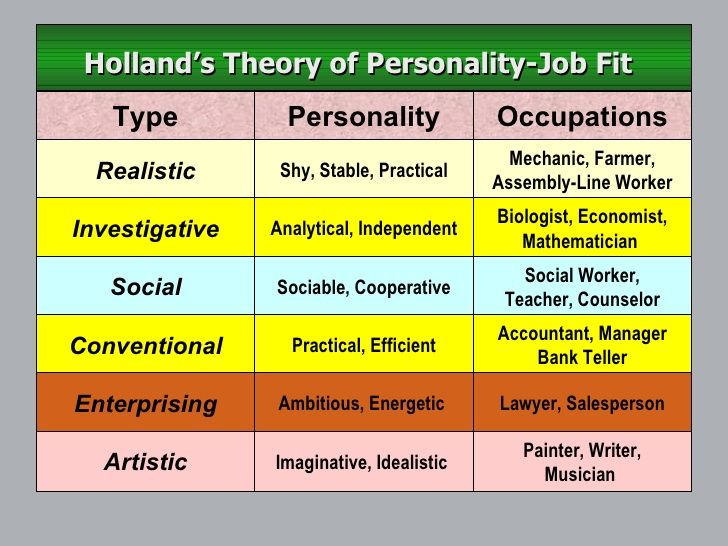 Who would you rather be?
Who would you rather be?
Financial adviser
Company director
14. Who would you prefer to be?
Code clerk
Art critic
15. Who would you prefer to be?
Store manager
Composer
16. Who would you rather be?
Mining engineer
Biophysicist
17. Who would you prefer to be?
Livestock breeder
Tutor
18. Who would you rather be?
Painter
Cataloger
19. Who would you rather be?
Game manager
Market director
20. Who would you rather be?
Electrician
Cartoonist
21. What would you like to be?
Biologist
Family doctor
22. Who would you rather be?
Virologist
Controller-cashier
23. Who would you prefer to be?
Geneticist
Manager
24. Who would you rather be?
Hydrobiologist
Writer
25. Who would you prefer to be?
Kindergarten teacher
Draftsman
26.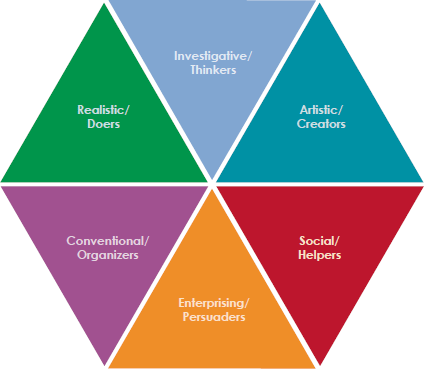 Who would you rather be?
Who would you rather be?
Swimming instructor
Sales manager
27. Who would you rather be?
Nurse
Model
28. Who would you rather be?
Typesetter
Wholesaler
29. Who would you rather be?
Music copyist
Music arranger
30. Who would you rather be?
Foreman
Musician
31. Who would you rather be?
Machinist
Research Engineer
32. Who would you prefer to be?
Tailor
Dating Consultant
33. Who would you rather be?
Steering-mechanic
Recorder
34. Who would you rather be?
Plasterer
Entrepreneur
35. Who would you rather be?
Gardener
Dancer
36. Who would you rather be?
Scientific journal editor
Teacher
37. Who would you rather be?
Theoretical physicist
Blueprint copier
38. Who would you rather be?
Ichthyologist
Banker
39.